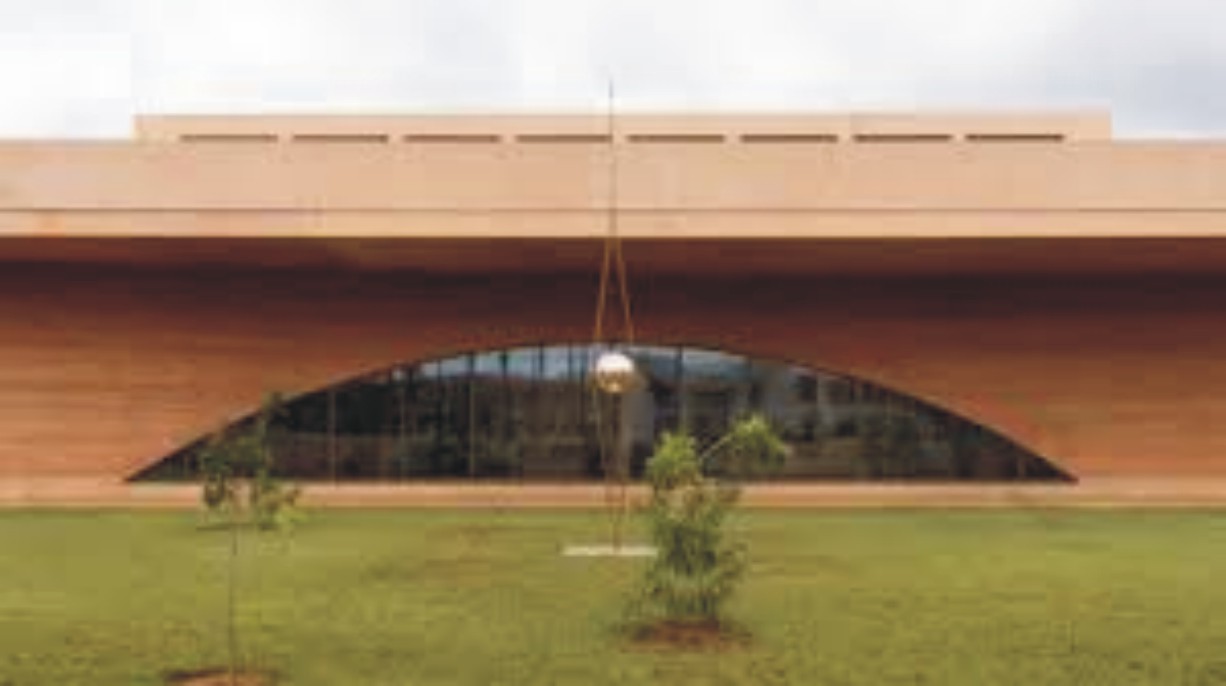By Olotu Ekundayo
A major cultural project in Benin City, the Museum of West African Art (MOWAA), has become the center of a heated dispute involving the Edo State Government, the Oba of Benin, and various stakeholders in Nigeria’s art and heritage community.
The controversy came to a head last week when a preview event at the newly built museum was disrupted by protesters believed to be loyal to the Oba of Benin, Oba Ewuare II. The demonstrators stormed the venue, chanting pro-palace slogans and accusing the museum’s management of undermining the traditional authority of the Benin Kingdom in matters relating to cultural heritage.
The confrontation forced organizers to suspend the event and postpone the official opening of the museum indefinitely.
The Roots of the Conflict
At the center of the crisis is the issue of ownership and control of the world-famous Benin Bronzes—ancient royal artifacts looted from the Benin Kingdom in 1897 during a British invasion. In recent years, several Western museums and governments have pledged to return these treasures to Nigeria.
Originally, the Museum of West African Art was conceived as a home for the returned bronzes and other West African art collections. Backed by local and international partners, the project promised to make Benin City a global hub for cultural preservation, tourism, and artistic research.
However, in 2023, the Nigerian federal government formally recognized Oba Ewuare II as the custodian of the returned Benin artifacts, emphasizing that they rightfully belong to the royal palace and the Benin people. This declaration created tension with the MOWAA project, which had already been promoted as a central institution for the display and study of the bronzes.
Many in Benin City saw this as a clash between modern cultural management and traditional authority.
Revocation of Land Title and Rising Tensions
The conflict deepened when the newly elected Edo State Governor, Monday Okpebholo, revoked the Certificate of Occupancy (C-of-O) previously granted to MOWAA. In a statement issued through the Ministry of Lands and Urban Development, the government said the revocation was made “in overriding public interest” and to protect the cultural integrity of the Benin Kingdom.
The decision sparked mixed reactions. Supporters of the Oba’s palace praised the move, describing it as a necessary step to ensure that the bronzes and related cultural heritage remain under traditional custodianship.
On the other hand, officials of the Museum of West African Art have denied any wrongdoing or disrespect toward the Benin throne. The museum’s founder and director, Phillip Ihenacho, said MOWAA does not claim ownership of any artifacts and is committed to working with the palace and the community to preserve their heritage.
“MOWAA was established to promote West African art and culture through research, education, and exhibitions,” Ihenacho said. “We have never claimed ownership of the Benin Bronzes, nor do we intend to display them without proper authorization.”
National Attention and Federal Intervention
As the dispute escalated, the federal government intervened. President Bola Ahmed Tinubu has reportedly set up a special panel to mediate the crisis, chaired by the Minister of Art, Culture, and Creative Economy. The panel’s mandate is to find a lasting solution that respects both the cultural sovereignty of the Benin Kingdom and Nigeria’s broader commitment to heritage development.
“The reported disruption at MOWAA not only endangers a treasured cultural asset but also threatens Nigeria’s global reputation in the arts and creative sector,” the Minister said in a public statement. “All stakeholders must exercise restraint and pursue dialogue.”
International observers have also expressed concern. Foreign embassies and donors who supported the museum’s construction are watching the situation closely, fearing that the unrest could discourage further investment in cultural projects in Nigeria.
Heritage, Identity, and the Future
The Benin Bronzes are among Africa’s most valued cultural treasures, symbolizing the artistry, history, and resilience of the Benin Kingdom. For many people in Edo State, the ongoing conflict is not just about buildings or land—it is about identity, memory, and the rightful custodianship of heritage.
Cultural analysts say the dispute highlights the delicate balance between traditional institutions and modern governance in managing Nigeria’s cultural resources. While some advocate for collaboration between the palace and the state to maximize the bronzes’ educational and tourism potential, others warn that the conflict could undermine the unity and progress of the state.
Tourism experts also caution that the delay in opening MOWAA could affect local employment and economic prospects. The project was expected to attract thousands of visitors annually, boost hospitality businesses, and establish Benin City as a premier cultural destination in West Africa.
Looking Ahead
For now, the Museum of West African Art remains closed to the public, and its future uncertain. The state government’s revocation order, the palace’s firm stance on cultural ownership, and the museum’s insistence on neutrality have all created a complex impasse.
As dialogue continues, residents of Benin City hope for a peaceful resolution that honors both tradition and progress. “We want development, but not at the expense of our heritage,” said one protester outside the museum gate. “The world must respect the Oba and the history of Benin.” Whether MOWAA reopens its doors soon—or remains a symbol of Nigeria’s struggle to reconcile heritage with modernity—will depend on how quickly the stakeholders can find common
